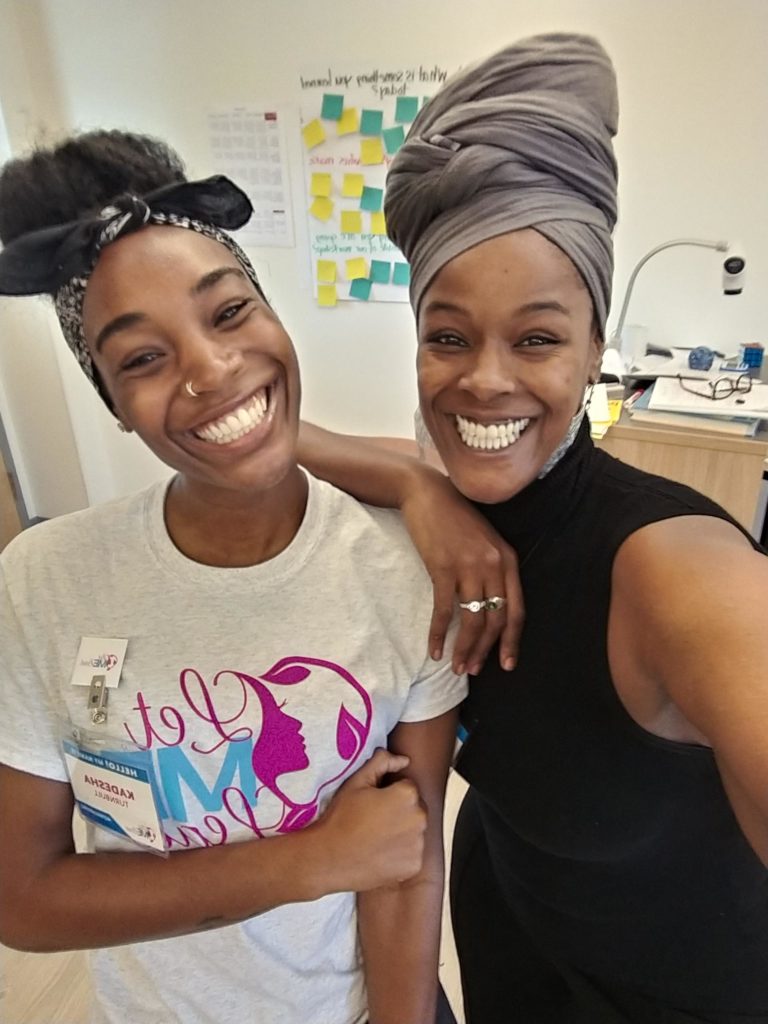Why we should all stand with girls of color in Boston

Last year, YW Boston noted the ways in which the city is failing girls of color, a group facing concerning rates of disciplinary action and discrimination in our schools. On a national level, Black girls get school suspensions 7x more often than White girls, and while Black children make up about 16% of all U.S. public school students, they also account for 40% of school suspensions. Locally, 40% of Boston-area female students are Latina; 37% of Boston-area female students are Black; and 12.5% of Boston-area female students are White. Even so, Black girls make up 78% of school-based arrests. Our girls of color are feeling unsafe, unheard, persecuted and disconnected.
Rep. Ayanna Pressley is looking to do something about it. A new bill introduced by Pressley and co-sponsored by Rep. Ilhan Omar, The Ending PUSHOUT Act (Ending Punitive, Unfair, School-Based Harm that is Overt and Unresponsive to Trauma), seeks to award federal grants and incentives to schools that ban unfair discipline practices. Additionally, schools will be assisted through bias training, counselors, mental health specialists, and social workers. The bill hopes to tackle the school-to-prison pipeline by targeting discriminatory and punitive discipline policies that push students of color out of schools at disproportionately high rates. In order to be eligible for Ending PUSHOUT funds, schools must ban suspensions and expulsions due to lateness or chronic absences, or for minor offenses like violating grooming policies, for children up to fifth grade.
Why are girls of color particularly vulnerable to disciplinary action?
Girls of color face bias and discrimination against at least two of their intersecting identities—race and gender. These experiences of discrimination can interact with other identities such as citizenship status, national origin, first language, ability, and more. Addressing the criminalization of young girls of colors is a matter of racial and gender equity. A Georgetown Law national education survey found that educators believed girls of color needed less nurturing, less protection, and needed to be supported less. This perception of Black girls as less innocent may contribute to harsher punishment by educators and school resource officers.
Educate, Empower, Amplify, and Act: YW Boston’s commitment to girls of color
As an organization dedicated to eliminating racism and empowering women, ending the criminalization of girls of color is a top priority for YW Boston. YW Boston’s Advocacy Committee has committed to tackling the school-to-prison pipeline, with a focus on girls of color, by making it one of the committee’s primary policy priorities.
After assessing community needs and a variety of impact areas, YW Boston remodeled its Youth Leadership Initiative into a 12 to 15-week program for middle school girls, the F.Y.R.E. Initiative, and launched the new program during the fall of 2019. F.Y.R.E. (Fierce Youth Reigniting Excellence) empowers girls through a curriculum incorporating social justice education, positive identity development, and civic engagement.

TiElla Grimes, F.Y.R.E. Initiative Program Manager, said of the program’s curriculum, “The F.Y.R.E. curriculum was constructed incorporating the understanding of how the school-to-prison pipeline is disproportionately impacting girls of color, particularly Black girls. The sessions provide the girls with the opportunity to explore their own intersecting identities as well as learn about how identities are impacted by systems of power such as racism, sexism, adultism and more.” The program’s different sessions are crafted to encourage a cultivation of empathy for others and an exploration of different identities, including the intersectionality of race and gender. During the sessions, TiElla has noted recurring concerns from girls of color about a lack of diversity among schoolteachers and disproportionate disciplinary action against students of color.
F.Y.R.E. takes place in schools or during Out-of-School Time programs, and it is developed to operate in a “girls group” structure rather than a traditional classroom structure. Program participants will present a community action project at an end-of-semester conference, the F.Y.R.E. Symposium, where they’ll engage with other young leaders from across Greater Boston. “What I love about F.Y.R.E. is our approach to incorporating dialogue and experiential learning to cultivate empathy and community among the girls,” says TiElla. “This provides them with a space to share their stories, hear from each other, and come together to create a project that showcases their capacity to engage in advocacy and policy change. The F.Y.R.E. curriculum educates our girls about the issues that are highlighted in the PUSHOUT Act. The program gives them a space to not only critically think about these issues but also support them in identifying community needs and build problem-solving skills to identify solutions. F.Y.R.E. is reigniting the excellence and power in our girls so that they can navigate the world confidently, proactively, and with the ability to handle conflict with integrity.”
______
